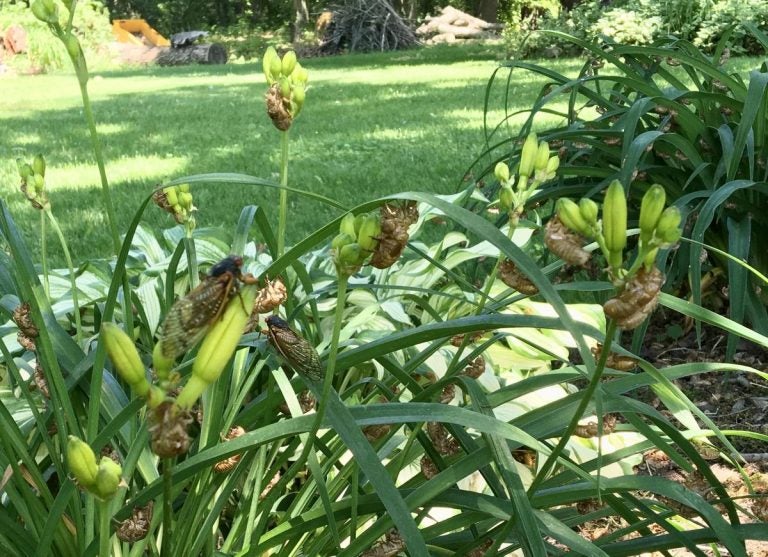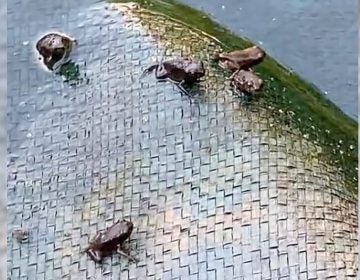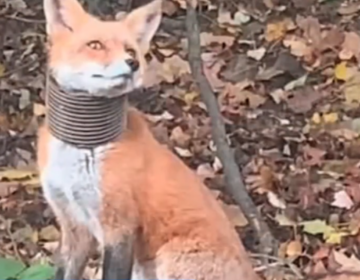Louder than a lawn mower, not big on social distancing, cicadas hit Central Pa.
Juniata County is one of the places Brood X cicadas emerged this year, after spending 17 years underground feeding on tree roots.

Periodical cicadas making themselves at home in the flowers outside Bret and Jody Satzler's house. (Anne Danahy / WPSU)
It can be hard to grasp that as many as 1.5 million cicadas can turn up on one acre of land. That is, until you hear them.
“They get so loud, you can hear them over the sound of the mower,” said Bret Satzler, referring to the sound coming from the periodical cicadas filling the trees in his yard, the wooded area behind it and just about everywhere you can think of.
Juniata County is one of the places Brood X cicadas emerged this year, after spending 17 years underground feeding on tree roots. I got to experience the cicada symphony when Satzler, one of my husband’s uncles, gave me a tour of his yard.
“It would take you years to count how many are just under some of these trees,” Satzler said.

That means it’s easy to see the red-eyed creatures too, and occasionally experience them first hand.
“Lawn mowing — they’re flying all over you. It doesn’t matter where you’re at, they just land on you,” Satzler said.
If all of that sounds horrifying, don’t worry. They’re largely harmless.
The native insects spend most of their lives underground feeding on tree roots. Brood X comes out every 17 years to mate. They can be found from Tennessee to New York, including in Blair, Huntingdon and Mifflin counties in Pennsylvania.
After mating, the females lay eggs in the branches of trees. That doesn’t hurt healthy, well-established trees. But, the cicada makes small cuts in the branches and it has the potential to damage or kill small or newly planted trees.
Once the eggs hatch, the nymphs drop to the ground and burrow into the dirt, where they feed on tree roots until they emerge in 17 years.
WHYY is your source for fact-based, in-depth journalism and information. As a nonprofit organization, we rely on financial support from readers like you. Please give today.






